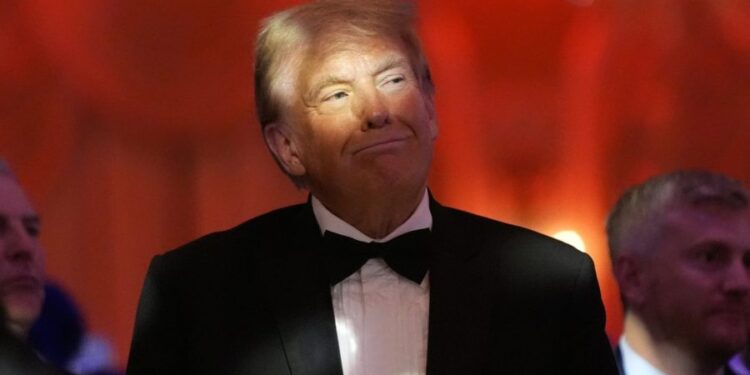
In the wake of President-elect Donald Trump’s victory, a wave of fear and reflection has taken hold across much of America. Much like Trump’s initial 2016 win, when journalists rushed to small-town Ohio diners to gauge what “real America thinks,” there’s a renewed sense that large swaths of experts and elites — not to mention the entire Democratic Party — may be out of touch with the zeitgeist and the electorate.
This feeling isn’t unwarranted, and it’s worth taking time to study what went wrong. But it’s also worth remembering that “the electorate” can be as unpredictable as the weather. If today’s voter preferences seem unsettling, give it time — they will likely shift again.
And no, this isn’t just about demographic changes; it’s about our ever-shifting national mood. After all, how else can we explain two-time Barack Obama voters switching to Trump in 2016?
A major driver of this volatility is that newly elected presidents tend to overestimate the mandate they’ve been given, assuming they’ve won a sweeping endorsement for their entire agenda. Joe Biden fell into this trap, convinced he could be the next Franklin D. Roosevelt or Lyndon B. Johnson, and his ambitious policy moves likely contributed to the outcomes (such as inflation) that helped Trump reclaim the White House.
These days, Trump seems at risk of a similar misinterpretation. His initial staffing choices — appointing former Rep. Matt Gaetz as attorney general, Robert F. Kennedy Jr. as head of Health and Human Services, former Rep. Tulsi Gabbard as director of National Intelligence, and Fox News host Pete Hegseth as Defense secretary — signal a radical direction that feels like a bridge too far for many average Americans.
While Trump openly campaigned on a platform of disruption and retribution, few of his voters were expecting these specific moves.
There are countless reasons why people might have voted for Trump. To be sure, there are plenty of MAGA true believers. But a lot of voters simply found him entertaining, disliked his opponent or assumed he wouldn’t follow through on certain outlandish claims. America may have voted for Trump, but that doesn’t mean most Americans actually want Trumpism.
And to the extent that voters liked Trump’s advertised agenda, they liked it in the abstract. This was also true of Trump’s first term.
Take the Affordable Care Act, a policy Trump promised to repeal in 2016. Trump voters may have supported its repeal in theory, but an actual rollback would have sparked a backlash, just as the overturning of Roe v. Wade did. Public sentiment can be surprisingly fluid, and drastic actions often lead to unanticipated consequences.
Along those lines, the collateral damage from Trump’s promised mass deportation of undocumented immigrants could result in a swift public backlash, irrespective of what the polls say today.
But problems don’t just arise for presidents who go looking for trouble. When you’re president, trouble finds you. For example, George W. Bush never recovered from the damage endured by his administration’s ineffective response to Hurricane Katrina in 2005.
Similarly, Trump better hope that the people he’s nominating are up to the task when the first big crisis hits. What happens if, God forbid, there is a major terrorist attack in America? What happens if there is another pandemic, or if old plagues we thought were long gone reemerge? Suddenly, appointing unqualified toadies, focused primarily on exacting petty revenge, could turn the tide of public opinion.
Trump is behaving today as if he has the world by the tail. We’ll see if that endures.
It’s also worth noting that presidents aren’t the only ones to overrate a single election’s results. Democrats should take Trump’s victory seriously but avoid seeing it as a fixed trendline into the future. History is full of surprising reversals. After all, Bush never achieved the “permanent” Republican majority his strategist Karl Rove talked about in 2004, nor did Obama’s “coalition of the ascendant” emerge to cement Democratic dominance.
Indeed, the exact opposite happened. Just four years after Bush’s reelection, Obama took office, defying conventional wisdom. And following Mitt Romney’s 2012 loss — which necessitated a Republican “autopsy,” promising a kinder and gentler party — few would have predicted Trump as the GOP’s answer to Obama’s reelection.
In the same vein, predictions about what the Democrats need to do to win in 2026 and 2028 are likely to miss the mark. Conventional wisdom suggests that the Democrats should nominate a populist “man of the people” type like Sen. John Fetterman so they can win back Joe Rogan listeners. But if recent history is any guide, the next president could be someone we can’t even imagine today.
While both parties should take the Nov. 5 election results seriously, they should resist the temptation to treat them as the permanent state of affairs. As long as our elections remain free and fair — admittedly, a huge caveat! — public opinion will continue to shift in unpredictable ways. Times change — and so do voters.
Fighting the last war is a loser’s game.
Matt K. Lewis is a columnist, podcaster and author of the books “Too Dumb to Fail” and “Filthy Rich Politicians.”







